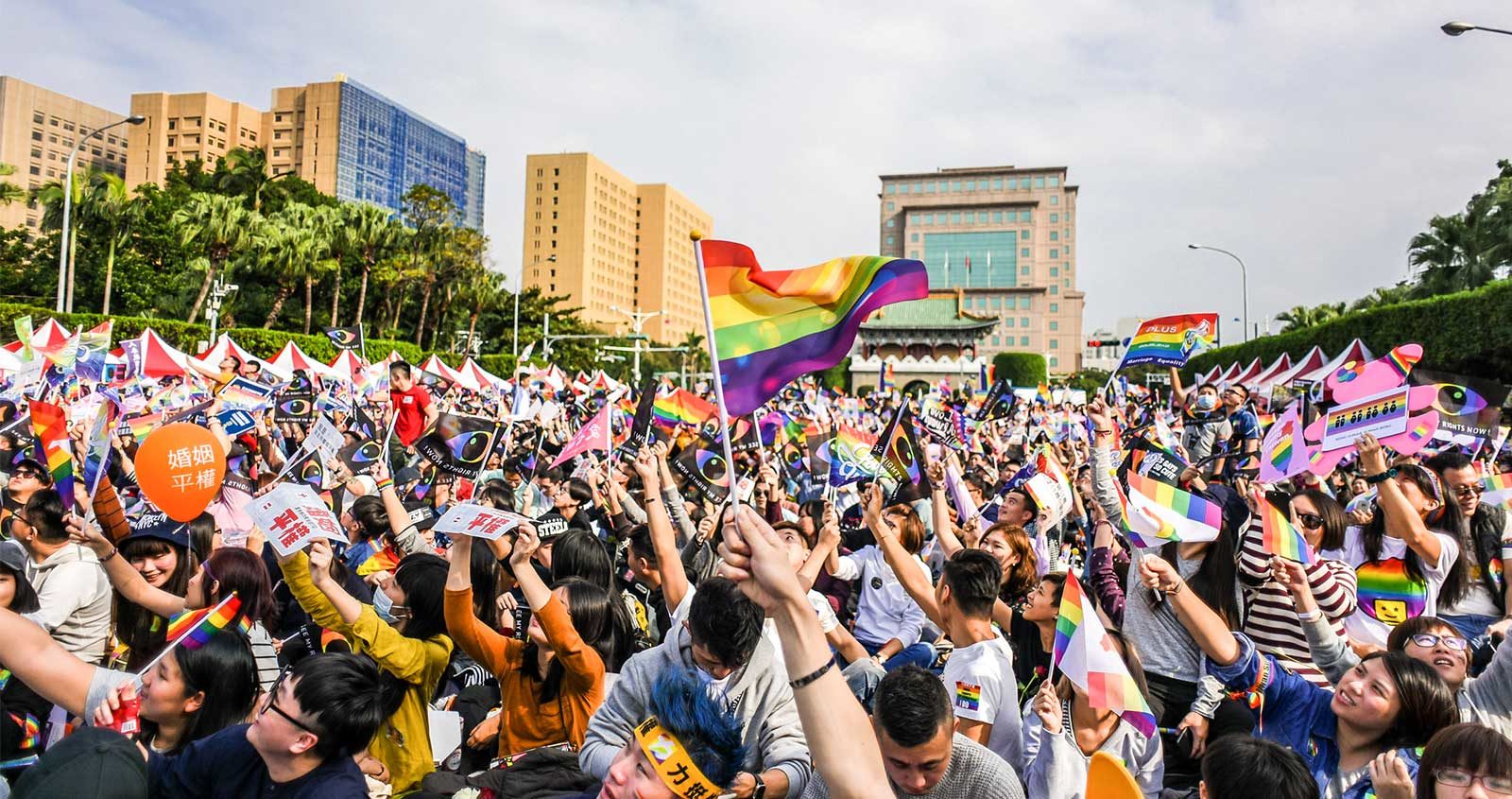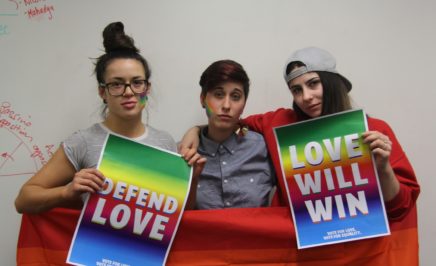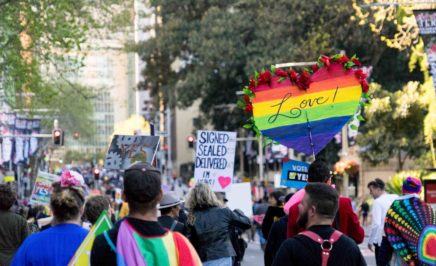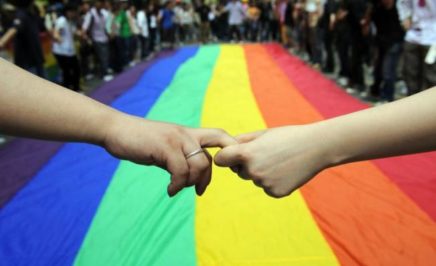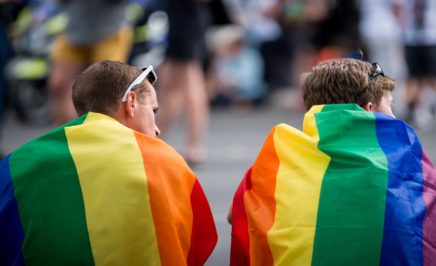The majority of Australians are in favour of marriage equality (also referred to as same-sex marriage or gay marriage). Amnesty LGBTQI activist Hannah Wahlsten writes passionately about what she is doing to make it a reality.
When I first joined Amnesty International Australia to build groups on University campuses, I had no idea of the path it would take me on. Now, a few years on, I am one of many activists around Australia fighting for marriage equality.
Around the world
On 13 July Malta’s parliament voted for marriage equality, joining over 20 countries around the world in legalising same-sex marriage, including Canada (2005), France (2013), the United Kingdom (2013), Ireland and the United States (2015) and Taiwan and Germany (2017). Taiwan is the first country in Asia – and second in the Asia-Pacific region (behind New Zealand) – to pass marriage equality laws, making the ruling by Taiwan’s top court particularly historic.
Australia’s fight for marriage equality
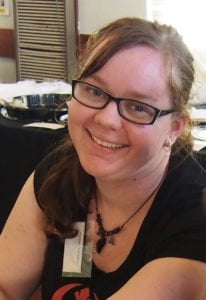
Although there has been a positive shift towards marriage equality around the world, the fight continues in Australia. The debate in Australia has steadily increased over the last 15 years, following a setback in 2004 when the government – led by then-Prime Minister John Howard – introduced an amendment to Australia’s Marriage Act, stipulating marriage to be a union between a man and a woman.
In the years since the changes to the Marriage Act were made, activists around Australia have not stopped fighting for marriage equality. In June 2007 a Galaxy Poll conducted on behalf of GetUp indicated a majority of Australians supported marriage. Since then support for marriage equality has risen, with a recent poll by Essential Report showing that 63% of the Australian public favour marriage equality.
So, where do things stand right now?
Our current government’s solution to marriage equality is an expensive plebiscite – a nationwide vote to gauge public feedback on a political proposal. Supporters of marriage equality have repeatedly stated a plebiscite would be a waste of money and because a plebiscite is not legally binding, the government would not have to write it into law – even if it showed a majority support for marriage equality. The government has repeatedly proposed a plebiscite, despite repeated calls from the Australian public and the LGBTQI community to hold a free vote and pass legislation in Parliament.
“I stand in cold weather, sometimes in the pouring with rain, attending rallies for marriage equality and trying – like many people before me – to make my voice heard”
But the good news is that we’ve had progress. Last week Liberal Senator Dean Smith revealed that he has prepared a private Senator’s bill to make marriage equality a reality for all Australians. This is the closest we’ve ever been to having the love and commitment of LGBTQI couples recognised in the same way as other Australians. Senator Smith will take his bill to the party room in the coming weeks to discuss.
Marriage equality and me
In 2013 my journey into the LGBTQI world began when I came out to my family as bisexual and was accepted by them. On my journey I have gained some amazing friends. I have also gained a new reality, a reality where social issues such as marriage equality are no longer just issues for politicians to debate or newspapers to write about. These issues directly impact my life and the lives of people I care about. When you are denied rights and protections granted to others automatically you can feel like a second-class citizen – like the world sees you as lesser than. This can lead to battles for your own mental health and to find ways to cope.
It’s time for politicians to do their jobs. It’s only fair. Take action in biggest #MarriageEquality campaign yet: https://t.co/vXQ0ZyVwxz pic.twitter.com/PoqH2TLVM2
— AU Marriage Equality (@AMEquality) February 5, 2017
Becoming an activist and fighting for my community is one of the ways I cope. I spend hours organising events, collecting petition signatures and researching ways to connect with MPs. I stand in cold weather, sometimes in the pouring with rain, attending rallies for marriage equality and trying – like many people before me – to make my voice heard. I do all this so that one day me and my friends aren’t treated as second-class citizens and the only thing affecting whether we get married is our choice to do so or not.
I urge you to keep fighting, signing petitions, talking to your MPs, going to rallies and joining LGBTQI groups. By working together, we can achieve marriage equality in Australia.
